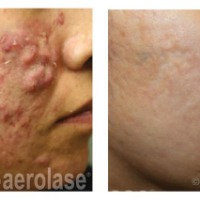According to numbers released by the American Cancer Society (ACS) in 2010, the most commonly diagnosed cancer among women in this country is breast cancer. While many women are aware of the need for regular mammograms and self checkups, few are aware of the processes following a diagnosis or how breast reconstruction differs from breast augmentation.

Model Photo
Dr. Scot Glasberg, a New York surgeon and expert in the field of post-mastectomy breast reconstruction described for us which physicians should be included in this team process. "The core of the team should include 5 members; the internist, breast surgeon, oncologist, plastic surgeon and radiologist." These members should all meet with the patient at their first appointment following diagnosis, if not all together then they should at least be consulting one another to determine the best course of treatment, with the end goal of leaving a patient feeling whole again.
"Only 30% of the patients who are candidates for reconstruction are referred to a plastic surgeon after their treatment. We need to address this and get the word out to physicians and patients around the country that with a team approach we can get the necessary information to these patients right away," says Dr. Glasberg. Having breasts is an important way in which women define themselves, and the loss of that in breast cancer treatment can be devastating. When a patient has hope, it helps them deal with the difficulties of facing the disease.
Dr. Glasberg says that reconstruction methods vary based on several factors, the greatest of which is the patient's choice. In mastectomy, the entire breast is removed, including the skin, nipple and areola. In reconstruction, the plastic surgeon rebuilds the breast shape and contour. Patients have a choice of either the use of a breast implant or the patient's own tissue (autologous reconstruction). Dr. Glasberg says, "If the patient has enough fat to do a transfer procedure, we'll take fat, skin and muscle - typically from the abdomen - and transfer it to breast."
One of the concerns in breast reconstruction is having a proper support for the implant. Dr. Glasberg uses AlloDerm Regenerative Tissue Matrix which provides coverage and support for the breast implant helping to improve aesthetic results. "It acts like a hammock and helps to create the proper shape for reconstruction," says Dr. Glasberg.
"The best part of my practice is treating these survivors and seeing how much happier they are when they have their breasts back and can feel complete again," he says. For more information on breast reconstruction options, please visit www.BreastReconstructionMatters.com.







